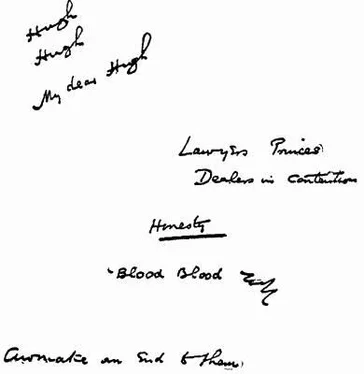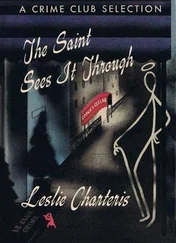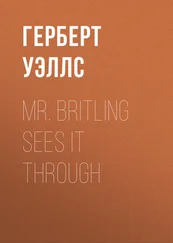Herbert Wells - Mr. Britling Sees It Through
Здесь есть возможность читать онлайн «Herbert Wells - Mr. Britling Sees It Through» весь текст электронной книги совершенно бесплатно (целиком полную версию без сокращений). В некоторых случаях можно слушать аудио, скачать через торрент в формате fb2 и присутствует краткое содержание. Жанр: Классическая проза, на английском языке. Описание произведения, (предисловие) а так же отзывы посетителей доступны на портале библиотеки ЛибКат.
- Название:Mr. Britling Sees It Through
- Автор:
- Жанр:
- Год:неизвестен
- ISBN:нет данных
- Рейтинг книги:4 / 5. Голосов: 1
-
Избранное:Добавить в избранное
- Отзывы:
-
Ваша оценка:
- 80
- 1
- 2
- 3
- 4
- 5
Mr. Britling Sees It Through: краткое содержание, описание и аннотация
Предлагаем к чтению аннотацию, описание, краткое содержание или предисловие (зависит от того, что написал сам автор книги «Mr. Britling Sees It Through»). Если вы не нашли необходимую информацию о книге — напишите в комментариях, мы постараемся отыскать её.
Mr. Britling Sees It Through — читать онлайн бесплатно полную книгу (весь текст) целиком
Ниже представлен текст книги, разбитый по страницам. Система сохранения места последней прочитанной страницы, позволяет с удобством читать онлайн бесплатно книгу «Mr. Britling Sees It Through», без необходимости каждый раз заново искать на чём Вы остановились. Поставьте закладку, и сможете в любой момент перейти на страницу, на которой закончили чтение.
Интервал:
Закладка:
The other junior Britling danced in front of the hero, who was walking beside Mrs. Britling and trying not to be too aggressively a soldierly figure. He looked a very man in khaki and more of a boy than ever. Mrs. Teddy came behind, quietly elated.
Mr. Britling had a recurrence of that same disagreeable fancy that these young people didn't know exactly what they were going into. He wished he was in khaki himself; then he fancied this compunction wouldn't trouble him quite so much.
The afternoon with them deepened his conviction that they really didn't in the slightest degree understand. Life had been so good to them hitherto, that even the idea of Teddy's going off to the war seemed a sort of fun to them. It was just a thing he was doing, a serious, seriously amusing, and very creditable thing. It involved his dressing up in these unusual clothes, and receiving salutes in the street.... They discussed every possible aspect of his military outlook with the zest of children, who recount the merits of a new game. They were putting Teddy through his stages at a tremendous pace. In quite a little time he thought he would be given the chance of a commission.
"They want subalterns badly. Already they've taken nearly a third of our people," he said, and added with the wistfulness of one who glances at inaccessible delights: "one or two may get out to the front quite soon."
He spoke as a young actor might speak of a star part. And with a touch of the quality of one who longs to travel in strange lands.... One must be patient. Things come at last....
"If I'm killed she gets eighty pounds a year," Teddy explained among many other particulars.
He smiled—the smile of a confident immortal at this amusing idea.
"He's my little annuity," said Letty, also smiling, "dead or alive."
"We'll miss Teddy in all sorts of ways," said Mr. Britling.
"It's only for the duration of the war," said Teddy. "And Letty's very intelligent. I've done my best to chasten the evil in her."
"If you think you're going to get back your job after the war," said Letty, "you're very much mistaken. I'm going to raise the standard."
" You !" said Teddy, regarding her coldly, and proceeded ostentatiously to talk of other things.
§ 6
"Hugh's going to be in khaki too," the elder junior told Teddy. "He's too young to go out in Kitchener's army, but he's joined the Territorials. He went off on Thursday.... I wish Gilbert and me was older...."
Mr. Britling had known his son's purpose since the evening of Teddy's announcement.
Hugh had come to his father's study as he was sitting musing at his writing-desk over the important question whether he should continue his "Examination of War" uninterruptedly, or whether he should not put that on one side for a time and set himself to state as clearly as possible the not too generally recognised misfit between the will and strength of Britain on the one hand and her administrative and military organisation on the other. He felt that an enormous amount of human enthusiasm and energy was being refused and wasted; that if things went on as they were going there would continue to be a quite disastrous shortage of gear, and that some broadening change was needed immediately if the swift exemplary victory over Germany that his soul demanded was to be ensured. Suppose he were to write some noisy articles at once, an article, for instance, to be called "The War of the Mechanics" or "The War of Gear," and another on "Without Civil Strength there is no Victory." If he wrote such things would they be noted or would they just vanish indistinguishably into the general mental tumult? Would they be audible and helpful shouts, or just waste of shouting?... That at least was what he supposed himself to be thinking; it was, at any rate, the main current of his thinking; but all the same, just outside the circle of his attention a number of other things were dimly apprehended, bobbing up and down in the flood and ready at the slightest chance to swirl into the centre of his thoughts. There was, for instance, Captain Carmine in the moonlight lugging up a railway embankment something horrible, something loose and wet and warm that had very recently been a man. There was Teddy, serious and patriotic—filling a futile penman with incredulous respect. There was the thin-faced man at the club, and a curious satisfaction he had betrayed in the public disarrangement. And there was Hugh. Particularly there was Hugh, silent but watchful. The boy never babbled. He had his mother's gift of deep dark silences. Out of which she was wont to flash, a Black Princess waving a sword. He wandered for a little while among memories.... But Hugh didn't come out like that, though it always seemed possible he might—perhaps he didn't come out because he was a son. Revelation to his father wasn't his business.... What was he thinking of it all? What was he going to do? Mr. Britling was acutely anxious that his son should volunteer; he was almost certain that he would volunteer, but there was just a little shadow of doubt whether some extraordinary subtlety of mind mightn't have carried the boy into a pacifist attitude. No! that was impossible. In the face of Belgium.... But as greatly—and far more deeply in the warm flesh of his being—did Mr. Britling desire that no harm, no evil should happen to Hugh....
The door opened, and Hugh came in....
Mr. Britling glanced over his shoulder with an affectation of indifference. "Hal- lo! " he said. "What do you want?"
Hugh walked awkwardly to the hearthrug.
"Oh!" he said in an off-hand tone; "I suppose I've got to go soldiering for a bit. I just thought—I'd rather like to go off with a man I know to-morrow...."
Mr. Britling's manner remained casual.
"It's the only thing to do now, I'm afraid," he said.
He turned in his chair and regarded his son. "What do you mean to do? O.T.C.?"
"I don't think I should make much of an officer. I hate giving orders to other people. We thought we'd just go together into the Essex Regiment as privates...."
There was a little pause. Both father and son had rehearsed this scene in their minds several times, and now they found that they had no use for a number of sentences that had been most effective in these rehearsals. Mr. Britling scratched his cheek with the end of his pen. "I'm glad you want to go, Hugh," he said.
"I don't want to go," said Hugh with his hands deep in his pockets. "I want to go and work with Cardinal. But this job has to be done by every one. Haven't you been saying as much all day?... It's like turning out to chase a burglar or suppress a mad dog. It's like necessary sanitation...."
"You aren't attracted by soldiering?"
"Not a bit. I won't pretend it, Daddy. I think the whole business is a bore. Germany seems to me now just like some heavy horrible dirty mass that has fallen across Belgium and France. We've got to shove the stuff back again. That's all...."
He volunteered some further remarks to his father's silence.
"You know I can't get up a bit of tootle about this business," he said. "I think killing people or getting killed is a thoroughly nasty habit.... I expect my share will be just drilling and fatigue duties and route marches, and loafing here in England...."
"You can't possibly go out for two years," said Mr. Britling, as if he regretted it.
A slight hesitation appeared in Hugh's eyes. "I suppose not," he said.
"Things ought to be over by then—anyhow," Mr. Britling added, betraying his real feelings.
"So it's really just helping at the furthest end of the shove," Hugh endorsed, but still with that touch of reservation in his manner....
The pause had the effect of closing the theoretical side of the question. "Where do you propose to enlist?" said Mr. Britling, coming down to practical details.
Читать дальшеИнтервал:
Закладка:
Похожие книги на «Mr. Britling Sees It Through»
Представляем Вашему вниманию похожие книги на «Mr. Britling Sees It Through» списком для выбора. Мы отобрали схожую по названию и смыслу литературу в надежде предоставить читателям больше вариантов отыскать новые, интересные, ещё непрочитанные произведения.
Обсуждение, отзывы о книге «Mr. Britling Sees It Through» и просто собственные мнения читателей. Оставьте ваши комментарии, напишите, что Вы думаете о произведении, его смысле или главных героях. Укажите что конкретно понравилось, а что нет, и почему Вы так считаете.






